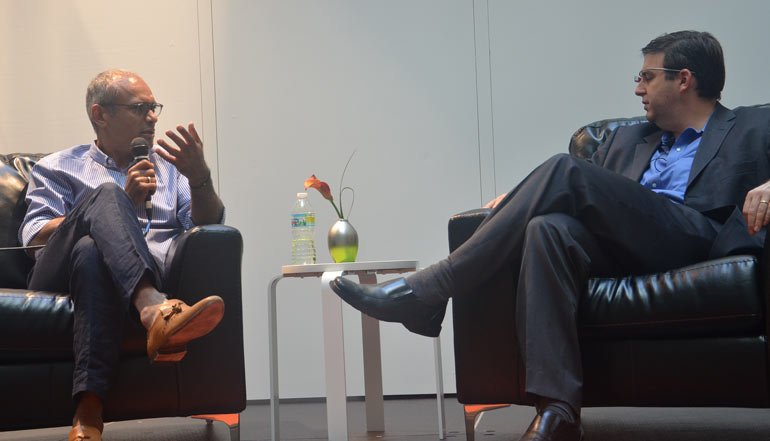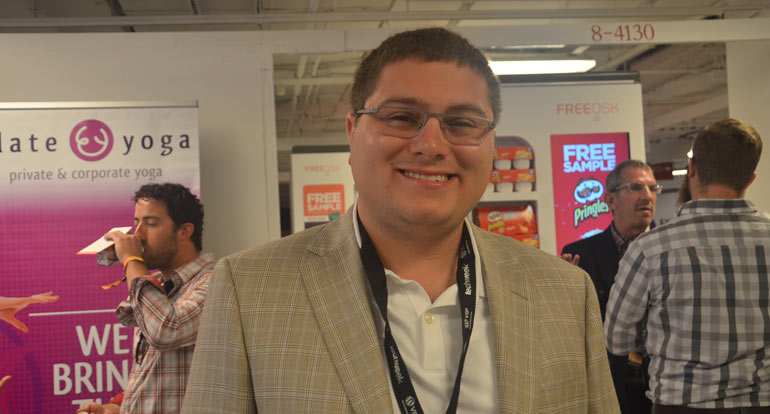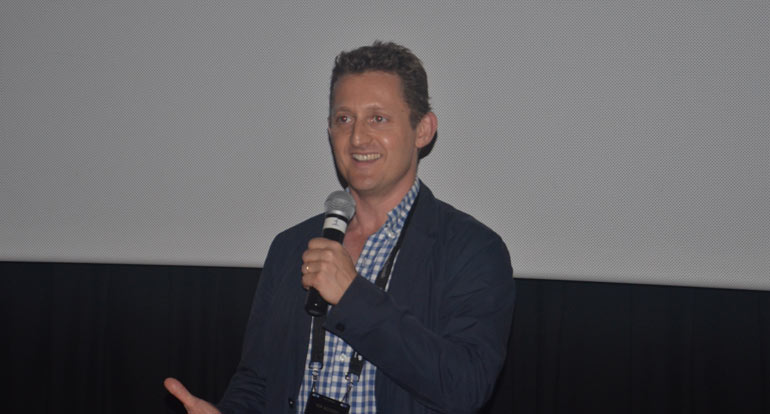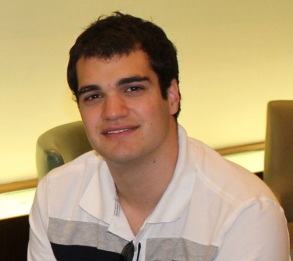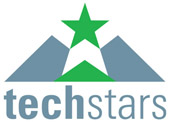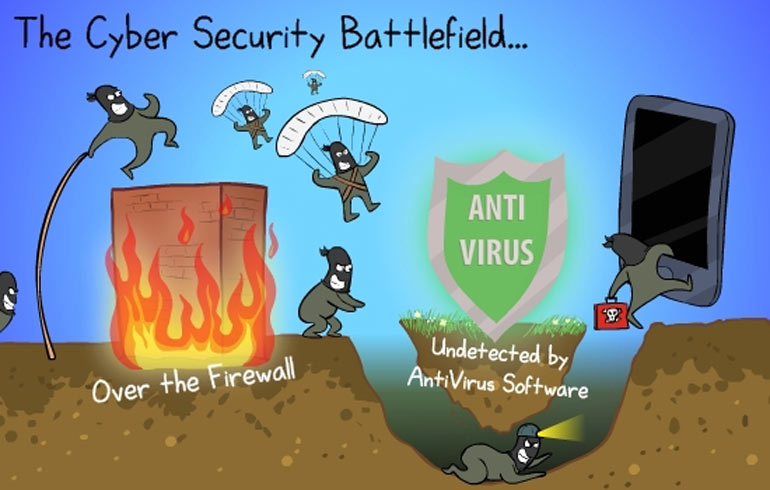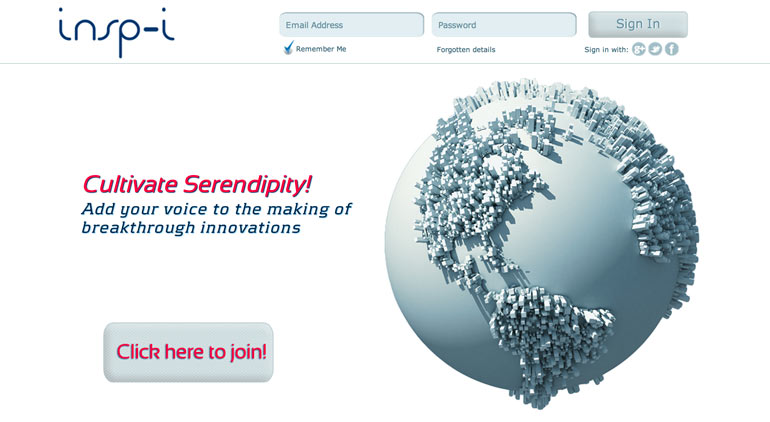
When I was first contacted by Kingsley Otoide about his Nigerian startup Insp-I, I was a little skeptical. We’ve all received 100s of emails, typically credited to Nigeria, saying we could easily make 2, 5, and $20 million dollars by helping someone move some absurd amount of money to a bank in the US. Luckily for me Otoide had a great sense of humor and an even better idea.
That idea is a startup called Insp-I.
Through several overseas phone calls and Skype sessions, I learned that Otoide’s startup is about ideas. It’s not an idea marketplace though. Insp-I is a social network for ideas where someone can cultivate, collaborate, and innovate on an idea they have but may not have the resources to flush out.
Say you had a brilliant idea to try something different that you thought was the treatment for cancer. You’ve done enough research to know you’re on track, but you’re not a doctor nor a scientist. Insp-I wants to be the global place where you can take that idea, find people you think would be useful to help build out that idea, and pitch it to them. The next step after that is to collaborate and get the conversation going.
Otoide and his cofounder Kelechi Iheanacho envision a social networking platform where no idea is a bad idea. Sure we say that all the time, but what often makes a bad idea bad is the inability to follow through. By connecting the thinkers with the doers and vice versa, you create serendipity, and real innovation can get done.
Otoide and Iheanacho see their platform as a place where people with a good idea can share it with someone who can execute or help brainstorm it. Then, that same user can turn around and brainstorm or build someone else’s idea.
We got a chance to interview Otoide about this new idea for a new social network. Check out that interview below.
What is your startup called?
Insp-i
What does your company do?
Insp-i is the world’s first social network purpose-built for democratizing and engineering disruptive innovations.
In 2008, a 16-year-old Danish high school student thought to herself, “What if we made ozone in the lab and used it as a personal protective coating to help prevent skin cancer?”
Obviously, she lacked the domain expertise required to develop the idea. Fortunately, she got the opportunity to discuss her idea with a Nobel scientist. The eventual result of a series of interactions was Buckyozun, a product that gives 99.99% protection against all UV-radiation and has a large market potential in about 14 industries- including, the space industry.
Now, imagine what benefits yet await mankind if we proactively got domain experts in the various fields of human endeavor to rub minds with non-experts (e.g., domain experts from other fields, grassroots innovators in Africa or Asia, shop floor employees, students, etc). Simply put, the possibilities are limitless.
Who are the founders, and what are their backgrounds
Kingsley Otoide
He studied medicine at the University of Nigeria before becoming a global marketing associate for Invent Resources, Inc.(IR), a US company founded by four top US scientists/inventors one of which is Dr. Richard Pavelle, the President. Through his effort, IR’s GTL technology was reviewed by some leading corporations (e.g. BP, Sasol, Lurgi, etc) and venture capitalists (e.g. Vinod Khosla).
Kelechi Iheanacho
He is the ‘silent founder’ because he is an officer and engineer with the Nigerian Navy.
Earlier, the founders built an Execution Risk Management (ERM) software for which a Nigerian patent number RP 15584 was granted.
Where are you based?
Lagos, Nigeria.
What problem do you solve?
The CULTURES and DESIGNS of the better-known of the existing social networks are such that they do not proactively catalyze the interaction of people from diverse backgrounds (i.e. disciplines, industries, nationalities, ages, experiences, etc.) Rather, people tend to connect with other people just like themselves. As a consequence, opportunities for serendipity, new knowledge and breakthrough innovations are stifled.
What we offer is a social network with a CULTURE and DESIGN that encourage people of diverse backgrounds to freely interact in solving the world’s many problems. Imagine that, with each post or tweet you write, you could actually target only the person or persons you wanted to engage in conversation with. For example, with one post or tweet you want to rub minds with 2 doctors in Brazil, 3 physicists in China, and 4 veteran plumbers in India in one space as predetermined by you. And you can have as many of such conversation spaces as you wish and at the same time. That is what our social network aims to do- and much more.
Or think of it as some sort of online version of breakout sessions at a conference where all of the world’s 7 billion people are in attendance. And that each attendee has the power to choose the people he or she wants at his/her table at each session while there are no limits to the number of tables or session that each attendee can create.
As is well-known, breakout sessions are conversation spaces for inspiration and collision of ideas as well as opportunities for new knowledge and breakthrough innovations.
Why now?
There is no better time. We are at a critical time when the world is in dire need of new knowledge and breakthrough innovations that can help solve its many problems.
What are some of the milestones your startup has already reached?
Actually, we have been working on this project for the last 2 years. And we took all that time to validate the project idea with some of the world’s leading domain experts and innovation-focused institutions. Here is what some of them have been saying:
‘That is a wonderful idea. I have long shared that it is often from people outside a discipline that come up with the best innovative ideas!’
– Clayton Christensen, Harvard professor and co-author of The Innovator’s DNA.
“It’s an intriguing idea. I think the core insight that networks like Facebook focus on connecting you to people you already know, rather than people with unexpected perspectives and insights is a valid one – indeed, it’s one of the core ideas of the book I’m publishing next year.”
– Ethan Zuckerman, Director, Center for Civic Media, MIT.
‘I agree completely. Thanks for sharing!’
– Jeff Dyer, BYU professor and co-author of The Innovator’s DNA.
‘I agree that putting together “beginners’ minds” with experienced people can yield great results. We discuss this in much more detail in the book When Sparks Fly, published by Harvard Publishing on the topic of group creativity.’
– Dorothy Leonard, Harvard professor and co-author of When Sparks Fly.
‘Yes, I agree that the folks who work on the ground (on the factory floor, in the trenches, etc.) are often a terrific source of ideas and should be included in the conversation. The split between professionals and non-professionals is false and counterproductive. This was also one of the big insights of Japanese “lean” management and quality circles.’
– AnnaLee (Anno) Saxenian, professor and Dean at UC Berkeley School of Information.
Also, we have got the following individuals as Advisors:
Beth Kolko
She is a professor in the Department of Human Centered Design & Engineering at the University of Washington. She is also a Founder and CEO of Shift Labs, an engineering and manufacturing company.
Jason Fraser
He is a co-founder and principal at LUXr Incorporated, the lean user experience residency based in San Francisco, CA.
David Verba
He is a former director of technology for Adaptive Path; currently, CTO & Founder Halcyon Engineering.
Jenny E. Jung
She is the Global Partnership Director at Blackbox.vc based in Atherton, CA.
Dr. Clifford D. Conner
He is the author of A People’s History of Science: Miners, Midwives, and “Low Mechanicks.”
What are your next milestones?
We have built a prototype to demonstrate our raw idea. And we want people from all over the world to try it out and give us useful feedback. At the same time, we are looking to launch our company in the US to take advantage of the unique startup nourishment that can be found there.
Where can people find out more? Any social media links you want to share?
Please see our prototype www.insp-i.com, If you have a Twitter account, be sure to follow us @inspiglobal

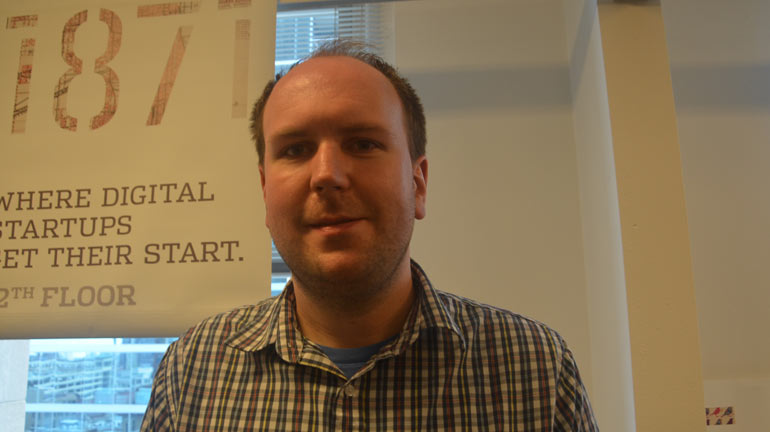 We ran into the guys from Conferences.io at last year’s Chicago TechWeek, and this year they’re even better.
We ran into the guys from Conferences.io at last year’s Chicago TechWeek, and this year they’re even better.


